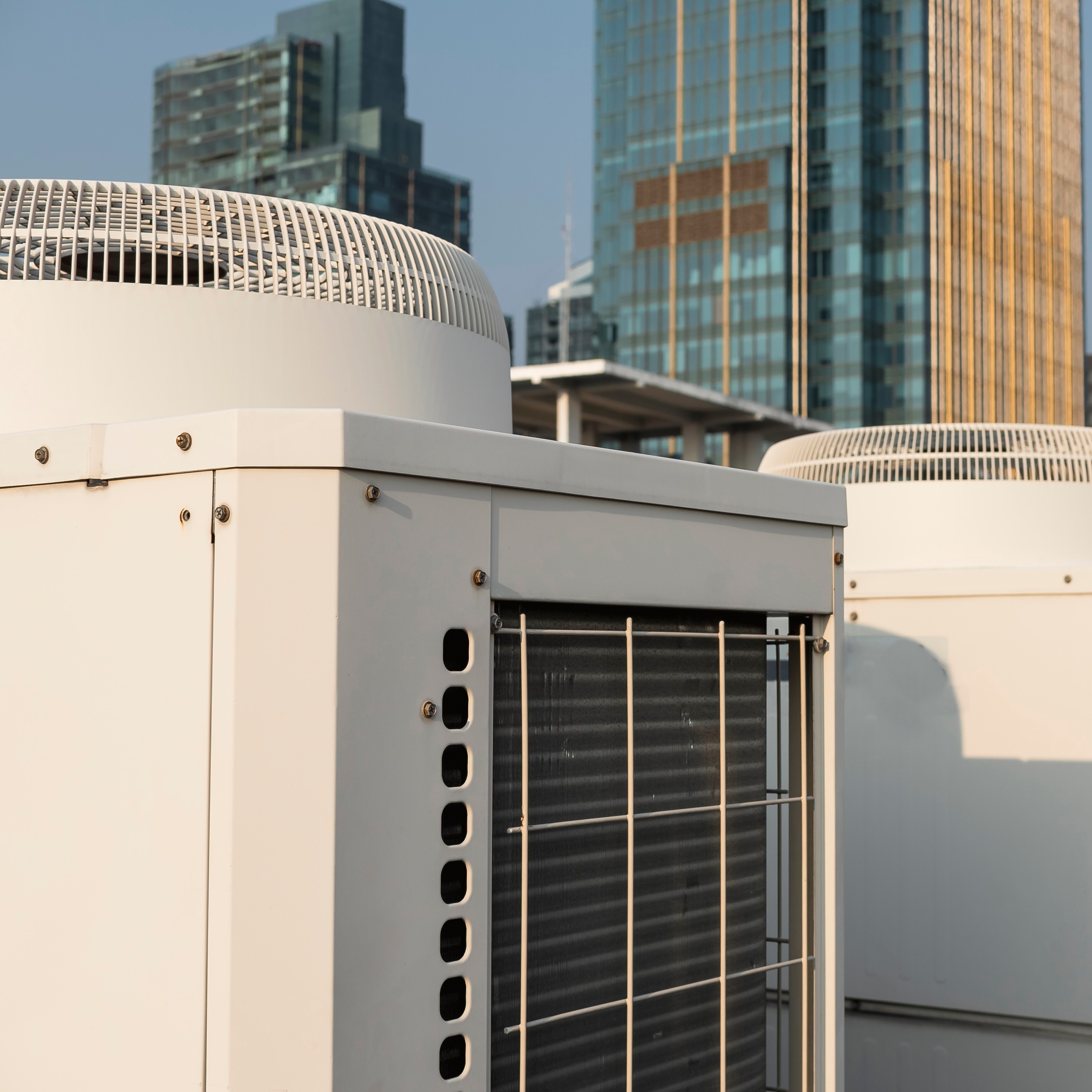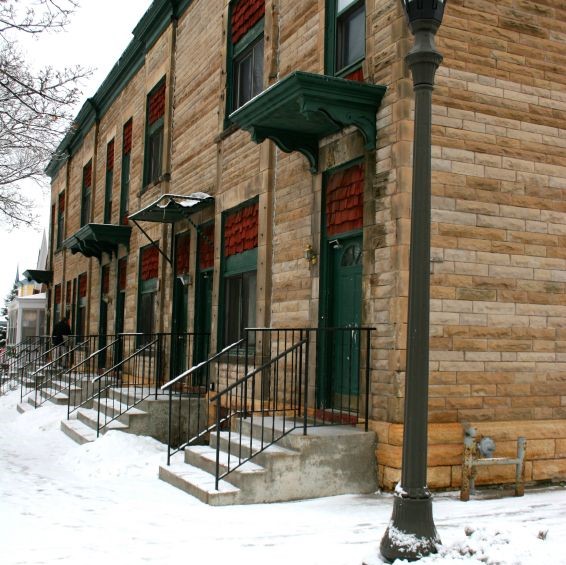This post complements our quarterly research newsletter, which features updates on CEE's research projects. Sign up to get this information in your inbox.
Overcoming the Market Barriers for RTU Retrofit Enhancements
 Background: Retrofit packages and technologies are viable options for existing standard efficiency rooftop units (RTUs) and offer a great opportunity for energy savings. However, retrofits continue to be uncommon. This project will define the barriers that have kept these products from significant market penetration and develop strategies to overcome those barriers based on the features and cost-effectiveness of specific enhancements.
Background: Retrofit packages and technologies are viable options for existing standard efficiency rooftop units (RTUs) and offer a great opportunity for energy savings. However, retrofits continue to be uncommon. This project will define the barriers that have kept these products from significant market penetration and develop strategies to overcome those barriers based on the features and cost-effectiveness of specific enhancements.
Update: The project’s approach pairs market study interviews with short-term field demonstrations to test and compare specific RTU enhancements. The market study component revealed that a major obstacle to RTU retrofitting projects is a lack of education and awareness on the now much wider array of technology available. The project team will use results from the field studies to generate a one-page summary of findings as a helpful reference guide for key stakeholders to increase adoption. The project timeline has been extended and is projected for completion and a final report in 2023.
This project is supported by a grant from the Minnesota Department of Commerce, Division of Energy Resources through the Conservation Applied Research and Development (CARD) program, which is funded by Minnesota ratepayers.
Optimizing the New Generation of Grocery Refrigeration Equipment
 Background: This project will field test design features that provide savings opportunities in carbon dioxide refrigeration systems that have not yet been addressed by Minnesota’s utility programs. The team will conduct detailed field monitoring and validated modeling of local installations to evaluate their performance and cost-effectiveness against typical CO2 system designs. These findings will inform recommendations for rebate program measures and guidelines.
Background: This project will field test design features that provide savings opportunities in carbon dioxide refrigeration systems that have not yet been addressed by Minnesota’s utility programs. The team will conduct detailed field monitoring and validated modeling of local installations to evaluate their performance and cost-effectiveness against typical CO2 system designs. These findings will inform recommendations for rebate program measures and guidelines.
Update: The third project site’s construction has been completed and monitoring with flooded medium temperature evaporator operation began in early fall. The project team expects to be monitoring all three field sites roughly through September 2023. The installation of mechanical subcooling at the second site has been delayed due to damage that occurred during product shipment. The first site, testing adiabatic gas cooling, saw significant savings while running water more in moderate summer weather. An interim report for this project is projected to be published in early 2023.
This project is supported by a grant from the Minnesota Department of Commerce, Division of Energy Resources through the Conservation Applied Research and Development (CARD) program, which is funded by Minnesota ratepayers.
Cold Climate Heat Pumps for Multi- and Single-family Applications
 Background: The 2018 CARD Minnesota Energy Efficiency Potential Study identified cold climate air source heat pumps (ccASHPs) as the technology expected to provide 25% of total residential electrical savings in the state in the coming decade. These two projects will identify, install, and analyze ccASHP applications in multifamily and single-family residences to develop and refine application protocols based on field data.
Background: The 2018 CARD Minnesota Energy Efficiency Potential Study identified cold climate air source heat pumps (ccASHPs) as the technology expected to provide 25% of total residential electrical savings in the state in the coming decade. These two projects will identify, install, and analyze ccASHP applications in multifamily and single-family residences to develop and refine application protocols based on field data.
Update: The project team has completed installation of ccASHPs at almost all test sites and collected data through a partial heating season. From the initial results, the team concluded that the ccASHPs could have operated more efficiently and they are in the process of further optimizing installations and collecting and processing data on those updates. Project timelines have been extended and the team expects to summarize the test site data for a final presentation and report in 2023.
Visit the Multifamily project page
Visit the Single-family project page
This project is supported by a grant from the Minnesota Department of Commerce, Division of Energy Resources through the Conservation Applied Research and Development (CARD) program, which is funded by Minnesota ratepayers.
Heat Pumps for ACs
 Background: This project will use characterization and modeling efforts to examine an emerging market product category of interest to manufacturers—air source heat pumps (ASHPs) that are designed and marketed as AC replacements. Using ASHPs to replace AC will provide increased cooling savings and help grow cost-effective channels to increase familiarity and acceptance of modern HVAC technology.
Background: This project will use characterization and modeling efforts to examine an emerging market product category of interest to manufacturers—air source heat pumps (ASHPs) that are designed and marketed as AC replacements. Using ASHPs to replace AC will provide increased cooling savings and help grow cost-effective channels to increase familiarity and acceptance of modern HVAC technology.
Update: An August webinar for this project is now available to view online, and the final report and deliverables are expected to be completed this winter. The study demonstrated that there is a large market opportunity for single-family homes to replace their current AC with a variety of available dual fuel ASHP products. The market is prime for transformational efforts to establish ASHPs as the new baseline technology but doing so will require increased education on the technology and more targeted incentivizing via rebates.
This project is supported by a grant from the Minnesota Department of Commerce, Division of Energy Resources through the Conservation Applied Research and Development (CARD) program, which is funded by Minnesota ratepayers.
Electrification and Climate Resilience
 Background: CEE will partner with Michigan Technological University on a project funded by the Alfred P. Sloan Foundation that will evaluate the barriers and opportunities to electrification of heating and cooling services in the rural north in Wisconsin, Minnesota, and Michigan using three community case studies to understand the unique features of post-extractivist and Tribal Nation communities in this region. Results will compare energy justice outcomes across alternative pathways for the provision of resilient heating and cooling services, and this study will examine the expansion of new renewable energy and energy storage on rural lands required for electrification.
Background: CEE will partner with Michigan Technological University on a project funded by the Alfred P. Sloan Foundation that will evaluate the barriers and opportunities to electrification of heating and cooling services in the rural north in Wisconsin, Minnesota, and Michigan using three community case studies to understand the unique features of post-extractivist and Tribal Nation communities in this region. Results will compare energy justice outcomes across alternative pathways for the provision of resilient heating and cooling services, and this study will examine the expansion of new renewable energy and energy storage on rural lands required for electrification.
Update: CEE will contribute to planning the residential electrification efforts, overseeing the fieldwork and data collection, and assisting in the analysis and reporting. CEE's primary tasks for this project will be the community-scale housing stock analysis and spatial scaling of individual and community-scale housing stock to the regional level and analysis of heat pump performance in cold climates.
Funding for this project is provided by the Alfred P. Sloan Foundation.
